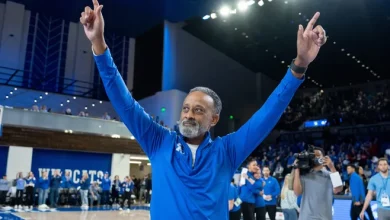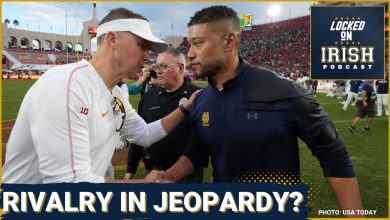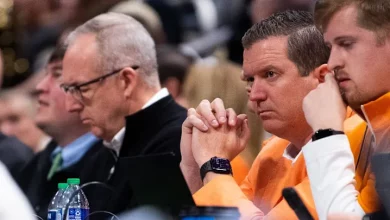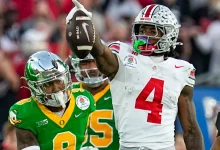Bob Stoops’ list of accomplishments at Oklahoma is mind-boggling
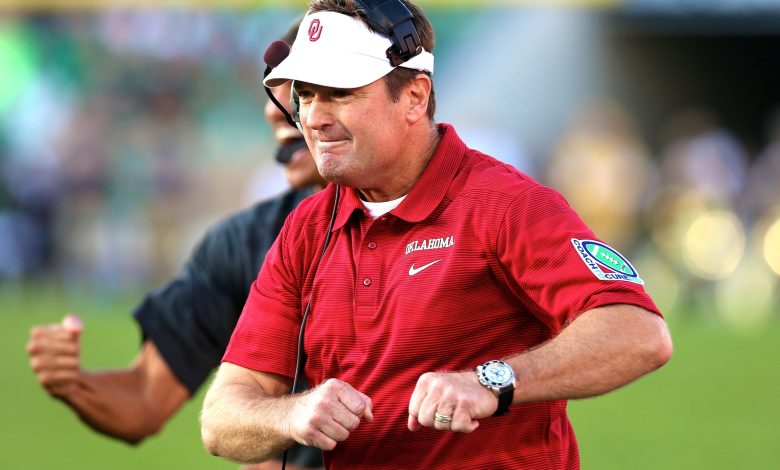
Bob Stoops’ list of accomplishments at the University of Oklahoma is nothing short of remarkable. The legendary coach’s tenure, which spanned nearly two decades, transformed Oklahoma football into one of the most successful and prestigious programs in the country. Stoops took over a team that was struggling to regain its championship pedigree and elevated it to the pinnacle of college football, producing national titles, conference championships, Heisman Trophy winners, and a slew of NFL talent. His achievements are vast and far-reaching, impacting not only Oklahoma football but the entire college football landscape.
When Stoops was hired as head coach in 1999, Oklahoma was at a crossroads. The program had experienced a downturn in the years following Barry Switzer’s departure in 1989, and the Sooners had failed to regain their former dominance. It was a program in search of its next great leader. Enter Stoops, a defensive mastermind who had been highly successful as the defensive coordinator at the University of Florida. Little did anyone know that Stoops would take the Sooners back to national prominence at a speed few could have anticipated.
By the time Stoops retired in 2017, his list of accomplishments was truly staggering and firmly established him as one of the greatest coaches in the history of college football. Here’s a breakdown of some of his most significant achievements.
One of the most extraordinary feats of Stoops’ career came in only his second season as head coach at Oklahoma. In 2000, just one year after taking the reins, Stoops led the Sooners to an undefeated season, a 13-0 record, and a national championship. The Sooners’ 13-2 victory over Florida State in the BCS National Championship Game remains one of the most dominant championship performances in college football history.
This was a team that had finished 7–5 the year before Stoops’ arrival, yet under his guidance, they became a juggernaut. Stoops’ ability to rebuild the program so quickly and to guide his team to the top in just two seasons is a testament to his coaching prowess. Not only did Stoops win a national title, but he did so in an era of dominant teams like Florida State, Miami, and Nebraska, proving that Oklahoma was ready to reclaim its place at the top.
Throughout Stoops’ tenure, Oklahoma’s dominance of the Big 12 Conference became a defining characteristic of his coaching legacy. Stoops won 10 Big 12 Championships during his time in Norman, an accomplishment that set him apart from other great coaches in the conference. The Sooners captured conference titles in 2000, 2002, 2006, 2007, 2008, 2010, 2012, 2013, 2015, and 2017.
Under Stoops, Oklahoma became the gold standard of Big 12 football. The Sooners’ consistent success in the conference made them a fixture in the national title picture and gave them a foothold in college football’s elite. Stoops’ ability to keep the Sooners ahead of the competition in the Big 12 through recruiting, player development, and game planning was instrumental in Oklahoma’s sustained excellence.
Stoops had an outstanding record in bowl games, further cementing his legacy. Over his 18 years as head coach, Oklahoma appeared in 18 bowl games. Stoops consistently had his teams ready for the postseason, and his ability to lead his teams through the pressure of bowl games was a significant part of his success.
Perhaps the most notable of these postseason victories was the 2001 BCS Orange Bowl, where Stoops led the Sooners to a victory over Florida State. The Sooners’ dominant 55-19 win over the USC Trojans in the 2005 Orange Bowl also stands out, as Oklahoma exacted revenge for their national title loss to USC in the previous season.
Stoops’ teams were known for showing up in big games, and his bowl-game performances only added to his reputation as a coach who could guide his teams to success when it mattered most.
Stoops’ time at Oklahoma saw some of the most electrifying players in college football donning the crimson and cream. Under his watch, two players won the prestigious Heisman Trophy, awarded annually to the best player in college football.
The first Heisman winner under Stoops was quarterback Jason White, who won the award in 2003 after leading the Sooners to a national title appearance against LSU. White was a model of consistency for Oklahoma and had one of the most efficient seasons of any quarterback in school history. He led the Sooners to a 12-1 record that season, culminating in a 35-7 victory over Texas in the Big 12 Championship Game.
In 2004, running back Adrian Peterson followed White’s Heisman win by taking home the award in his freshman year. Peterson’s combination of size, speed, and vision made him one of the most dynamic players in college football. He finished the season with 1,925 rushing yards and 15 touchdowns, and his play earned him the honor of being named the nation’s best player. Peterson would go on to have an illustrious career in the NFL, but it was Stoops who helped to develop his raw talent into something truly special.
Beyond White and Peterson, Stoops coached other Heisman finalists, including quarterbacks Sam Bradford and Baker Mayfield. Bradford, who won the 2008 Heisman, was instrumental in continuing the quarterback legacy at Oklahoma, while Mayfield, who won the Heisman in 2017, cemented his place as one of college football’s greatest players under Stoops’ successor, Lincoln Riley.
One of Stoops’ most significant contributions to Oklahoma football was his ability to develop players who were not only successful in college but went on to have productive careers in the NFL. Over the years, Stoops helped produce more than 40 NFL draft picks, with many of them going on to have successful professional careers.
Perhaps the most well-known of these draft picks was running back Adrian Peterson, who went on to become a future Hall of Famer in the NFL. Peterson’s extraordinary talent and production in college translated seamlessly to the pro level, where he became one of the greatest running backs in NFL history.
Other notable NFL players coached by Stoops include wide receiver Roy Williams, defensive tackle Gerald McCoy, linebacker Brian Bosworth, quarterback Landry Jones, and wide receiver Kenny Stills. Stoops’ ability to develop NFL talent consistently allowed Oklahoma to remain competitive on the national stage and gave the program a reputation for producing pro-caliber players.
Stoops was known for his exceptional ability to recruit, and that was key to his long-term success at Oklahoma. His recruiting efforts brought in some of the best talent in the nation, and his ability to develop that talent into elite players was one of his trademarks.
Oklahoma was consistently ranked among the nation’s top recruiting classes during Stoops’ tenure. He was particularly successful in recruiting top quarterbacks, which led to a succession of excellent quarterbacks like White, Bradford, and Mayfield. Stoops also built a reputation for attracting top-tier defensive players, particularly along the defensive line and in the secondary.
Stoops’ recruiting success didn’t just result in great individual players but in a deep, talented roster that gave Oklahoma a competitive edge over teams in the Big 12 and across the country. His ability to build balanced teams with both offensive and defensive talent allowed him to stay competitive in an era where teams had to excel in all phases of the game to compete for championships.
One of the most enduring aspects of Bob Stoops’ tenure at Oklahoma was the culture he built within the program. Stoops instilled a sense of discipline, accountability, and professionalism that permeated throughout the program. He demanded the best from his players, both on the field and in the classroom. His leadership created a strong team identity based on hard work, toughness, and relentless pursuit of excellence.
The success of Oklahoma football during Stoops’ time as head coach helped reinvigorate the state’s passion for the game. Stoops brought pride back to Oklahoma football, revitalizing the fanbase and re-establishing the program as a national power. Even after his retirement, Stoops’ impact on Oklahoma football remains evident in the program’s continued success under Lincoln Riley and the continued high level of recruiting.
Bob Stoops announced his retirement from coaching in 2017, after an 18-year career that saw him win a national championship, 10 Big 12 titles, and produce a legacy that will endure for generations. When Stoops stepped down, the program he built was in as good a shape as it had ever been, a testament to the longevity and sustained excellence he achieved over the course of his tenure.
His impact on Oklahoma football is immeasurable. He took over a program in disarray and turned it into one of the premier teams in college football. He brought national championships, conference titles, Heisman Trophy winners, and NFL-caliber players to Norman. More importantly, he re-established a culture of excellence that will continue to resonate for years to come.
Bob Stoops’ accomplishments at Oklahoma will forever be remembered as a high-water mark in college football history. He was more than just a coach—he was a leader, a motivator, and a builder of champions. His name will forever be etched in the annals of Oklahoma football, and his legacy will continue to inspire future generations of Sooners.



